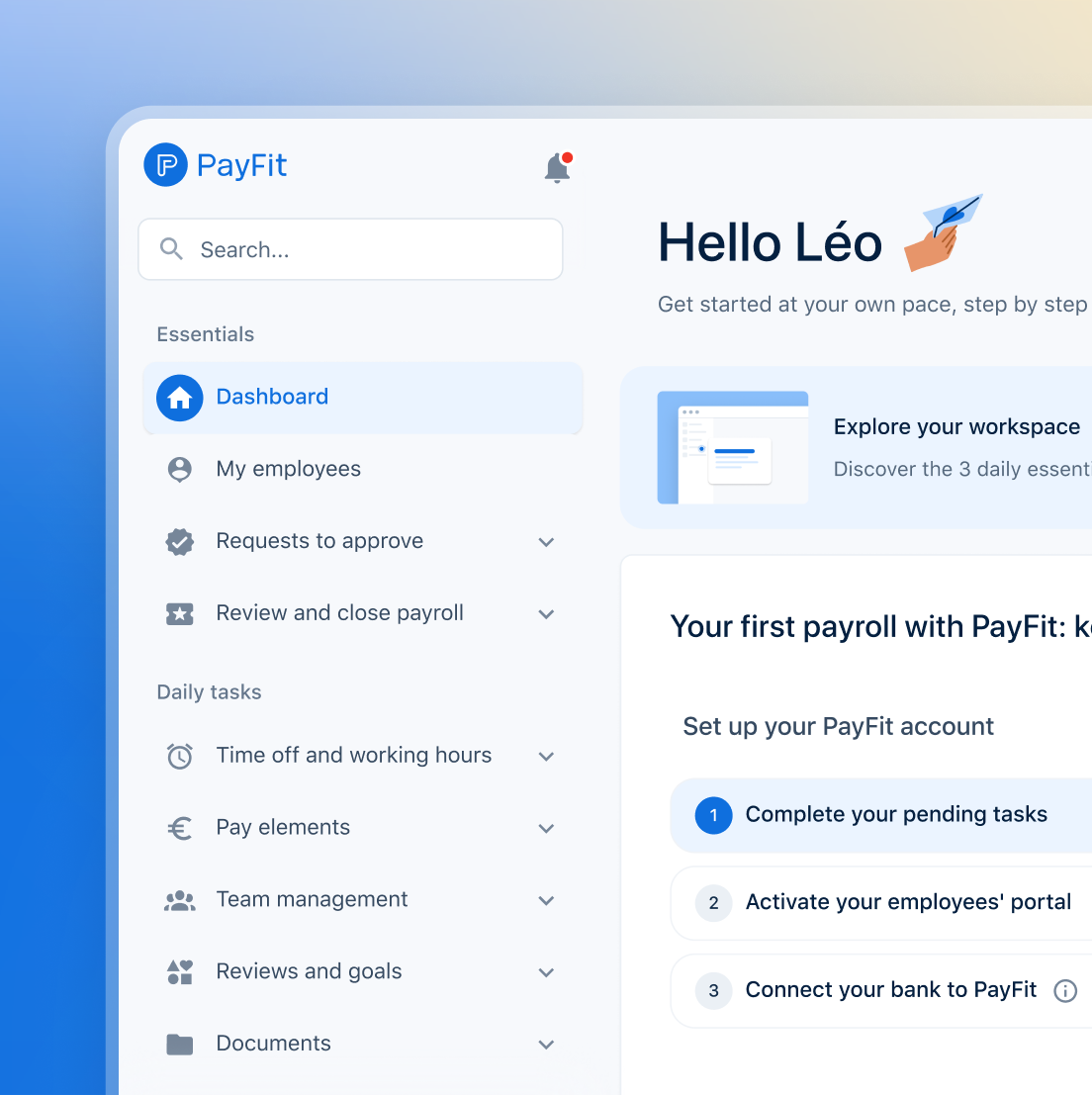✨ Health insurance, now in PayFit - learn more
💷 All the rates & thresholds you need to know for 25/26...right here
✨ The Payroll Journey: Start, Scale & Succeed Globally - learn more
✨ Health insurance, now in PayFit - learn more
💷 All the rates & thresholds you need to know for 25/26...right here
✨ The Payroll Journey: Start, Scale & Succeed Globally - learn more

Here’s a quick summary of the core differences between BACS and Faster Payments:
There are a few different ways to pay employees in the UK, the most popular method of payment being direct deposits to employee’s bank accounts (for employees on PAYE). However, what other banking options and systems are available to transfer money from your company’s account to your employee’s account?
This article will explain what BACS and Faster Payments are, in order to make it easier for you to understand and decide which of these options would work best for you and your business.
BACS payments, also known as Bankers Automated Clearing Services, is a type of bank transfer between bank accounts. It can either be a direct debit or direct credit, meaning it can be used to pay employees, and financial teams can also pull funds out of a customer’s bank account, to collect payments from customers.
Although BACS payments are not same-day payments, they are still the number one bank payment method UK businesses tend to use.
The processing time, or window, is 3 days, though it’s important to note that payments can only be made on standard working days, that is, from Monday to Friday, even though it’s an electronic system.
The main benefit of using BACS payments is that they generally have a lower cost per transaction than other payment methods. Charges then depend on the volume processed, as well as the bank used.
Another benefit of using BACS payment is that most payroll and accounting software supports BACS files.
| BACS pros | BACS cons |
|---|---|
| BACS payments involve minimal fees and are the cheapest way to send payments | Bacs payments take 3 working days to clear |
| Most payroll/accounting software supports BACS files | BACS payments have cut-off times and only clear on working days |
As the name suggests, Faster Payments are payments that clear on the same day or almost instantly, rather than 3 days like BACS payments do. With this payment option, the funds show on the recipient’s bank account in a matter of seconds.
Faster Payments don’t have a specific processing window or cut-off time, and they clear even on weekends and bank holidays. This is especially helpful for UK businesses that run weekly pay.
Faster Payments is one of the most expensive options to make bank payments, normally at £2.50 per transaction, unless you have a payment system such as Telleroo, with which the cost goes down to £0.45 or less.
Choosing Faster Payments puts you in control of your payroll times, eliminating any strict payment deadlines, and allowing you to create your own payment process.
| Faster Payments pros | Faster Payments cons |
|---|---|
| Faster Payments clear instantly | Faster Payments can be expensive |
| Faster Payments gives more flexibility | Need for additional payment system |
After going into the main differences between the two payment options, you might have an idea of which method works best for you.
However, to make things just a little bit easier, ask yourself these questions before deciding on BACS or Faster Payments:
What is your payroll frequency?
Have you got strict payment deadlines?
Would you benefit from having an additional payment system?
What payment times can your payroll system provider support?
Understanding when to use each payment system becomes clearer with practical examples:
| Scenario | Business context | Recommended method | Key benefits | Action to take |
|---|---|---|---|---|
| Monthly payroll for 50 employees | Predictable schedule, same payday each month | BACS | • Lowest cost • Bulk processing • Reliable for large teams |
Submit 3 days before payday |
| Emergency bonus payment on Friday evening | Urgent payment needed outside working hours | Faster Payments | • Instant clearing • Works 24/7 • Weekend processing |
Accept higher fee for speed |
| Weekly payroll on different days | Flexible schedule, no fixed payday | Faster Payments (via Telleroo/SmarterPay) | • No cut-off times • Full flexibility • No advance planning |
Use payment integration |
| Supplier payment for small business | Mix of urgent and routine payments | BACS or Faster Payments | • BACS = Lower cost • FP = Speed when needed |
Decide based on urgency |
As these examples show, the 'best' payment method isn't fixed, and depends entirely on timing and urgency. A business paying 50 employees monthly via BACS saves over £1,300 annually compared to using Faster Payments for the same task. But when Friday evening arrives and you realise you forgot to process a leaver's final pay, those savings mean nothing, you need Faster Payments.
💡 The smart approach? Use BACS for everything you can plan ahead: regular monthly payroll, scheduled supplier payments, routine transfers. Reserve Faster Payments for genuine urgencies: same-day corrections, weekend payments, or situations where the 3-day BACS window simply won't work.

While BACS and Faster Payments are the main banking transfer systems for domestic transfers in the UK, CHAPS (Clearing House Automated Payment System) is typically used for high-value, same-day transactions, such as buying property. SWIFT is the standard network used for international transfers. Unlike BACS, these alternatives often incur higher costs per transaction and are distinct from standard banking systems. CHAPS and SWIFT therefore serve different needs compared to regular payroll transfers.
Banks usually charge different rates depending on the service level. BACS is often the most cost-effective for bulk payments, whereas immediate transfer services may have higher fees unless you use a specialised provider to manage your transactions. Business banks usually have specific fee structures for these services, so it is important to read all of the terms.
To set up new accounts for payment, you must ensure you have the correct data, including sort codes and account numbers. It is vital to read any validation reports provided by your software to ensure the information and data is accurate before submitting. Always read the submission guidelines for your submission window to avoid errors that might have an impact on recipients and customers.
Understanding how the processing works is key. BACS operates on a 3-day cycle, whereas Faster Payments works near-instantly. This article highlights that the choice depends on your financial needs, and the time sensitivity of your payments and collections.

Innovative salary advance schemes can boost retention & financial well-being for UK employees. Explore benefits, risks & payroll software integration.

Learn how to work out hourly rates in the UK: convert salary using simple formulas, handle overtime, and stay compliant as you grow.

Learn how overtime pay works in the UK, including rules, rates, limits and holiday pay impact, so your company stays compliant and avoids payroll mistakes.

Explore different types of employee benefits, from statutory rights to discretionary perks, and learn how to build a compensation package to attract top talent.

Understand backdated pay in the UK, from tax & NIC implications to calculating arrears, with updates on the National Living Wage and Employment Rights Bill.

Confused about pro-rata pay? Discover what is pro-rata salary, how to calculate it for your part-time staff & how it impacts benefits and holiday entitlement.

See what's new in PayFit
New features to save you time and give you back control. Watch now to see what's possible